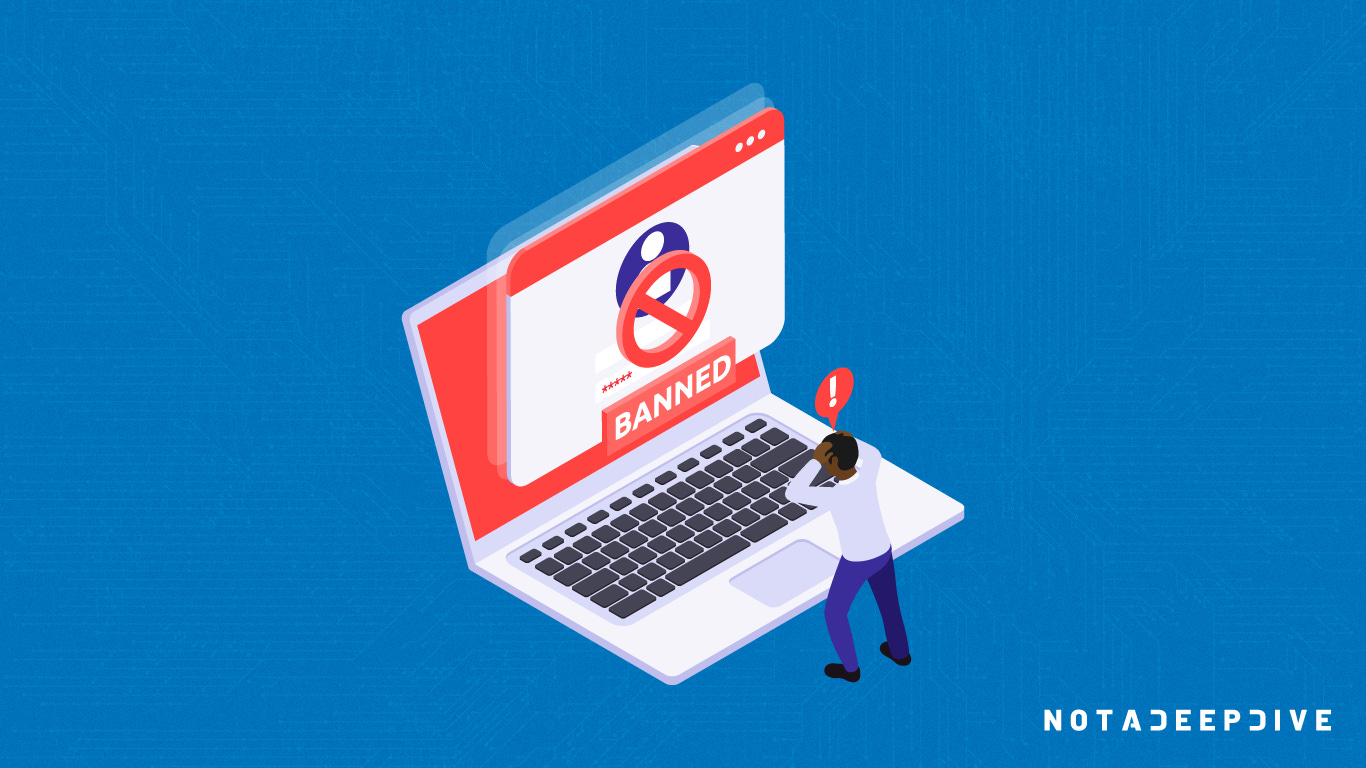Godwin "sit tight" Emefiele
Why does Godwin Emefiele need to remain in charge of CBN?
Today’s Notadeepdive is 978 words, a 5-minute read.
If you missed last week’s newsletters, catch up here and here. Please share today’s newsletter:
This newsletter is brought to you by Fincra and WoodCore. Fincra provides reliable payment solutions for fintechs, online platforms and global businesses. WoodCore is a lightweight cloud banking platform that enables fintech, digital banks, and payment service providers to create their own products.
TOGETHER WITH FINCRA
Payment collection just got easier on Fincra! Receive payments from your customers via debit/credit cards or bank transfers and settle these payments to your Fincra wallet or your bank account.). As a business, you only need to create easy-to-share payment links from the Fincra merchant portal or embed payment buttons on your online platform to gain access to Fincra Checkout; no coding is required.
On Sit tight governance
“The Nigerian Prison system does not exist in movies and popular culture. It exists only in evangelical outreaches and as a “show and tell” for management trainees of top banks. The message is simple: “don’t try to steal money from the bank, prison is real”. That’s a quote from an essay I wrote about the Nigerian Prison system in 2018. It came to mind in a conversation I had this week with a friend who was a graduate trainee at a Nigerian bank.
An integral part of the training process is a visit to the prison where you’re shown the squalid conditions of Nigerian prisons. You’ll also be shown or told about the many former bank workers who are now inmates at either Kirikiri or Ikoyi Prison. Despite this show and tell, the love of money ensures that year on year, more bank workers join the ranks of those awaiting trial. If you Google “Nigerian banker arrested for fraud,” there are lots of recent results to pick from.
But this is not only about fraud, a problem that’s endemic to banks and fintechs globally. It’s about one of the red flags banks and other corporate organisations check for with employees. While an employee who never goes on leave may on the surface be seen as the diligent workaholic who’s in love with his work, the trained eye can often spot something different.
In many banks, taking your annual leave is important so that there’s some degree of oversight over your work in your absence. People with experience in Nigeria’s banking industry tell me that on several occasions, “sit tight employees” who never take their annual leaves are sometimes compulsorily sent on leave and found to be notorious fraudsters. One such case in Nigeria’s biggest bank reportedly saw the employee defraud the bank for around $1 million. It’s rough out here.
I was having these conversations about Nigerian banks and how to spot fraud in the same week that Godwin Emefiele, Nigeria’s Central Bank Governor was fighting to keep his seat while attempting to run for President. So, clearly, this is really unrelated. After all, what could Emefiele possibly have to hide having been at the CBN since 2014? Also, what’s the little matter that the CBN has stopped publishing its annual financial reports since 2018?
There have been reports that the CBN governor obtained a court judgment allowing him to run for the Presidency while keeping his position at the bank. But this other report from BusinessDay claims Emefiele has had a change of heart and instead will stay on as CBN governor. Either way, it looks like the most important thing right now to the CBN governor is to keep his position. Again, totally unrelated to our fraudulent bankers who refuse to go on leave.
In the end, it’s like my people say: if it looks like a shady employee, refuses to go on leave and has been caught on tape suggesting that some N500 billion is unaccounted for, it might be a good idea to look more closely at said employee. Until that happens, we can only wonder what’s really under the hood at the CBN.
TOGETHER WITH WOODCORE
The world is witnessing the most rapid adoption of digital banking ever. This trend was amplified by the pandemic and has seen more startups and businesses move into this space to build efficient digital banks. There is no way to run but forward. Even traditional banks are scrambling to launch and promote their digital channels in order to capture and maintain their market share.
Would you like to understand the technical know-how and business decisions involved in building a digital bank on a modern infrastructure like Woodcore? This use case offers you a 7-step guide on how to build a digital bank.
Interswitch breaks its silence with big funding
Interswitch is one of Africa’s unicorns, but it doesn’t command as many headlines as Chippercash, OPay, Andela or even Flutterwave. Interswitch became a unicorn in 2019, a time when a fabulous drinking game would be to take a shot whenever tech types asked the question, “where are the unicorns?”
At the time, the conversation wasn’t only about unicorn status but the company’s plans for an Initial Public Offering (IPO). It was supposed to be second time lucky for Interswitch, after Mitchell Elegbe, the company’s CEO said in 2016 that “listing on the London Stock Exchange (LSE) is an option on the table.” Eventually, the company decided against the IPO because of concerns about Nigeria’s unstable foreign exchange policy—side-eye Emefiele.
But the IPO talks were back on the table in 2019, with Techcrunch quoting a source as saying, “An IPO is still very much in the cards; likely sometime in the first half of 2020.” Jumia’s IPO and the early buzz around it made Interswitch’s timeline seem realistic. But companies propose and the pandemic disposes. In 2020, similar concerns over Nigeria’s macroeconomic conditions worsened by a pandemic may have forced a rethink again.
Since 2020, Interswitch has largely operated under the radar, calling very little attention to itself and not exactly sharing any of its plans. In that time, OPay, Flutterwave and Paystack have captured the public imagination with smart storytelling, allegedly inflated metrics and a dash of scandal.
Against all of that backdrop, Interswitch is now back in the thick of it with this week’s announcement that it has raised $110 million from LeapFrog investments and Tana Africa Capital. If we consider that a lot of companies in Nigeria announce fundraises months after, then it is likely that the raise happened last year. There’s also the fact that in a climate where people seem to have a fundraising news hangover, this may not achieve the big splash it was supposed to. Yet, fundraising is only one part of the story; what really matters is Interswitch’s plans for the future and where it goes from here as one of Nigeria’s most important tech companies.
TeamApt’s digital bank play
There’s no big secret about fintech startup, TeamApt’s plan to get into digital banking. The startup, which is hoping to become a unicorn soon, said in its last funding round that it will provide a digital bank to “bank the unbanked.” That tired cliche aside, the startup also shared last month that it’s relaunching one of its products, Moniepoint product as a business bank.
It might seem like two different things, but when you consider that the digital bank, Kuda, also recently launched business banking, it’s possible that Moniepoint could be more like Kuda and less like Brass. There’s some talk that Moniepoint will sign one of Nigeria’s newly famous skit makers as an ambassador, but beyond that, the details of the digital bank are still sketchy.
What’s clear is that we’re about to see some serious competition for users in the digital banking sector, right about the same time we’re seeing banks like Access launch their payment arms.
Also, Jumia’s Q1 results are due next week so one thing is sure: Q2 will be quite a ride!
What I’ve been reading
Let’s Grow The Game: RFC Stallions are putting African Immigrants onto rugby
Bolt Built $11 Billion Payment Business on Inflated Metrics and Eager Investors
At 14, He Fired a Fatal Shot. At 18, He Was Finally Sentenced.
Elon Musk Sows Doubt Over His $44 Billion Twitter Takeover
Pipino: Gentleman Thief. Magicians, Mafiosos, a Missing Painting, and the Heist of a Lifetime
Taxing Nigeria’s subnational economies to oblivion
Edited by: Alexander Onukwue, Hassan Taiwo, Jimi Osheidu
See you on Sunday!







How this apparently-confused man still governs an office as delicate as the CB beats me.
Father Lord, let it all end in 2023.🙏😩